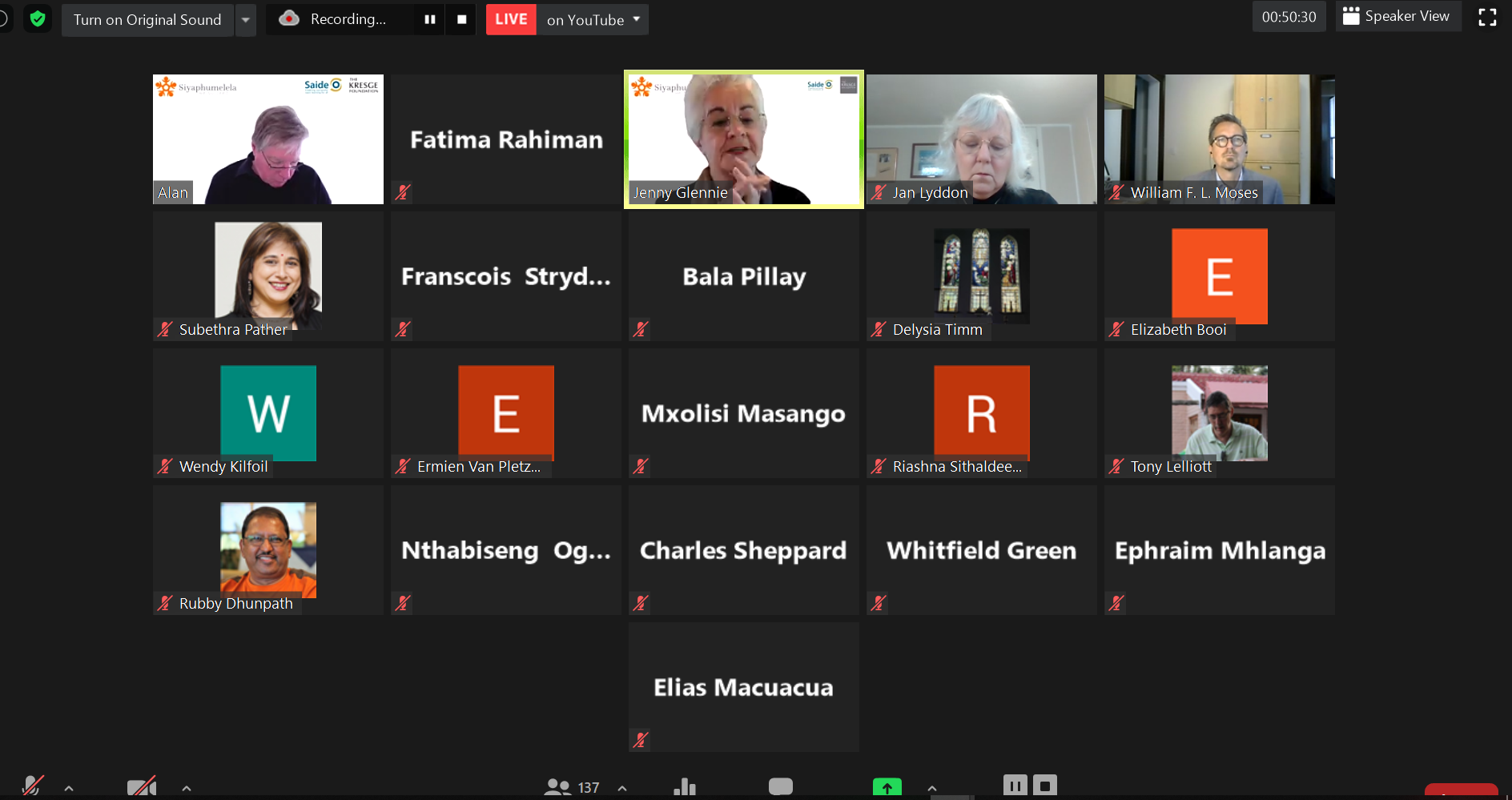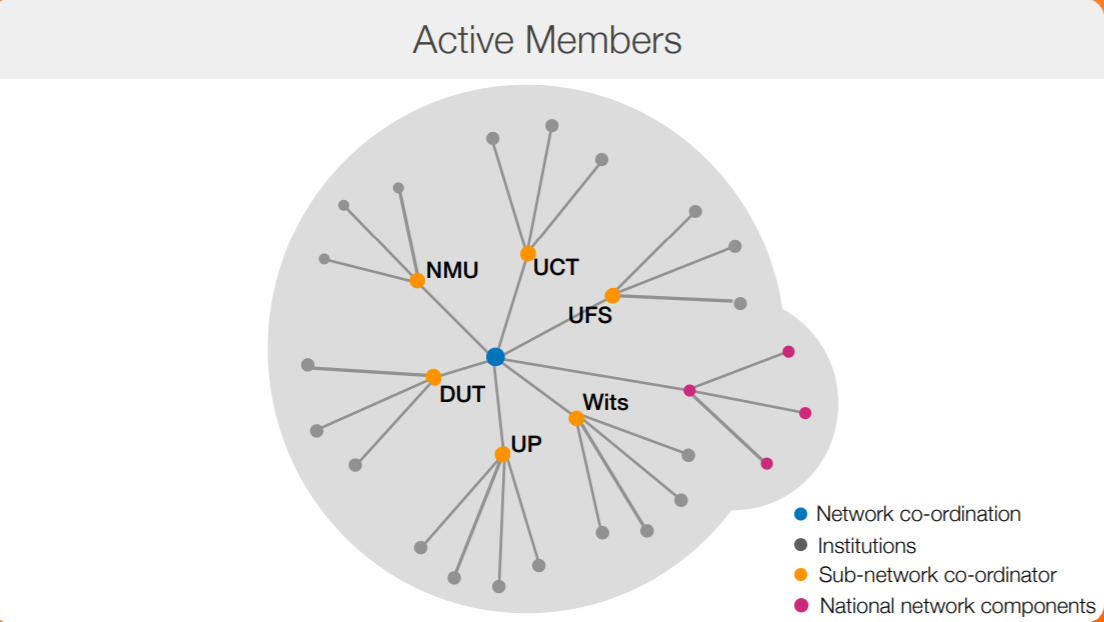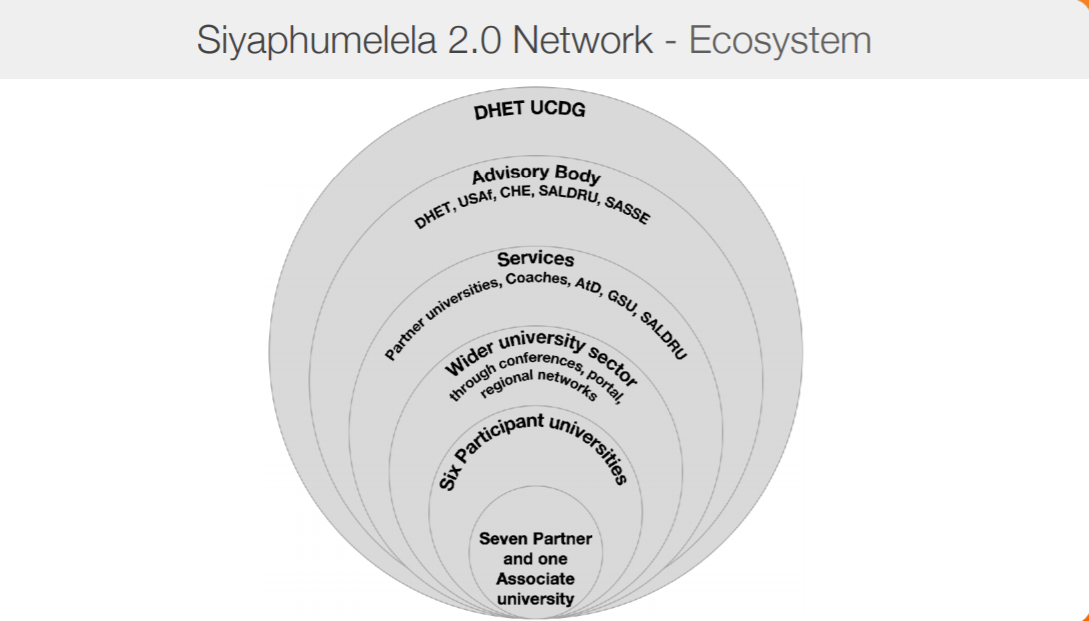
Siyaphumelela’s maiden online conference
Fatima Rahiman
Despite the COVID-19 pandemic’s restraint on conference gatherings, Saide managed to replicate its previous Siyaphumelela conference attendance figures, in the recent online webinar to launch the Siyaphumelela Network 2.0, with approximately 160 participants logging on to learn about this expanded work.
The webinar launch held on 26 August 2020 presented the expanded Siyaphumelela initiative, which focuses on increasing student success through the use of evidence based approaches.
The Siyaphumelela Network 2 is a spin-off from the previous phase of the initiative that sought to collect and share student data with the broader university community.
The tightly packed programme, steered by Saide’s Alan Amory’s deft hand and a seamless transition of slides , commenced with a presentation by Bill Moses from the Kresge Foundation, who reaffirmed their ongoing support for the expansion of the initiative. His presentation also elucidated the notion of student success and Siyaphumelela’s nuanced approach to data analytics, highlighting how this was underscored by the pillar of inclusivity and a collaborative working approach.
Jenny Glennie, Director of Saide - the co-ordinating body of the Siyaphumelela initiative, provided an overview of how the Network will operate for example through regional and national networks, and integrated services with the lead universities in the network as shown below:

Jenny Glennie outlined the envisaged ecosystem within which the Network will work through its offering of services currently available such as student success coaching, the Institutional Capacity Assessment Tool (ICAT ) system, Know your Data webinar offerings as well as an Ethics workshop offering .

Expressing DHET’s recognition of the significant contribution of the Siyaphumelela partnership to student success in the SA higher education sector, Dr Whitty Green also thanked the Kresge Foundation for their continued commitment to higher education development and reflected on the maturation of the partnership, having evolved to that mutually beneficial one through the professional contributions of understandings of student success in the SA context. Whilst citing the positive trajectory of the system with improvement evidenced on most indicators, Green was quick to point out that there remains differential success rates with regards to the nature of programmes being offered, the medium of delivery i.e. contact versus distance programmes as well as the success gaps between gender and population groups. Student success thus remained an apex priority for the department.
Watch the launch webinar with Dr Whitty’s further synopsis of higher education’s response to the challenges of the Co-Vid Pandemic ( 00:22:45)
The programme included an overview by the seven partner institutions on their activities and the services they would be offering through the Network as well as that of the services of the six South African coaches who are supported by Achieving the Dream team.
The University of Cape Town will develop an institution-wide, integrated, data analytics system with faculty-specific dashboards to provide data for the development of interventions to support student success and improve quality of teaching and learning.
The University of the Western Cape will concentrate on strengthening its data analytics capacity, including enhancing the understanding of academic and support staff in the role of data analytics in driving student success.
At the University of KwaZulu-Natal, a three-year research study into the impact of various institutional policy interventions on student access and progression will be implemented.
The Durban University of Technology will be strengthening its data analytics capacity to build and encourage an evidence-led culture of decision-making and planning.
Nelson Mandela University is seeking to enhance training for student success coaches and academic advisors, as well as develop an integrative student success monitoring, tracking, and evaluation system.
The University of the Free State will evaluate the implementation of advising strategies to determine the impact of these interventions on students’ development and success.
The University of the Witwatersrand will research the prevalence and risk factors of depression, anxiety and suicidal ideation among students, and develop targeted interventions aimed at improving student quality of life.
The University of Pretoria, which was part of the original group in Siyaphumelela 1.0, will remain part of the network but will self-fund its work.”
Overview extracted from the University World News coverage of the event, written by Meneesha Govender. Read the full story here
Not to be deterred by the absence of the cocktail event and obligatory tea-time chats in previous years conference meetings, delegates took to the Zoom chat channel instead and engaged in active participation, proffering questions such as the ethics of data use, access to internet connectivity in remote areas etc. which were dealt with in the closing session. Saide is pleased to note that the comments expressed attests to an event well received!

